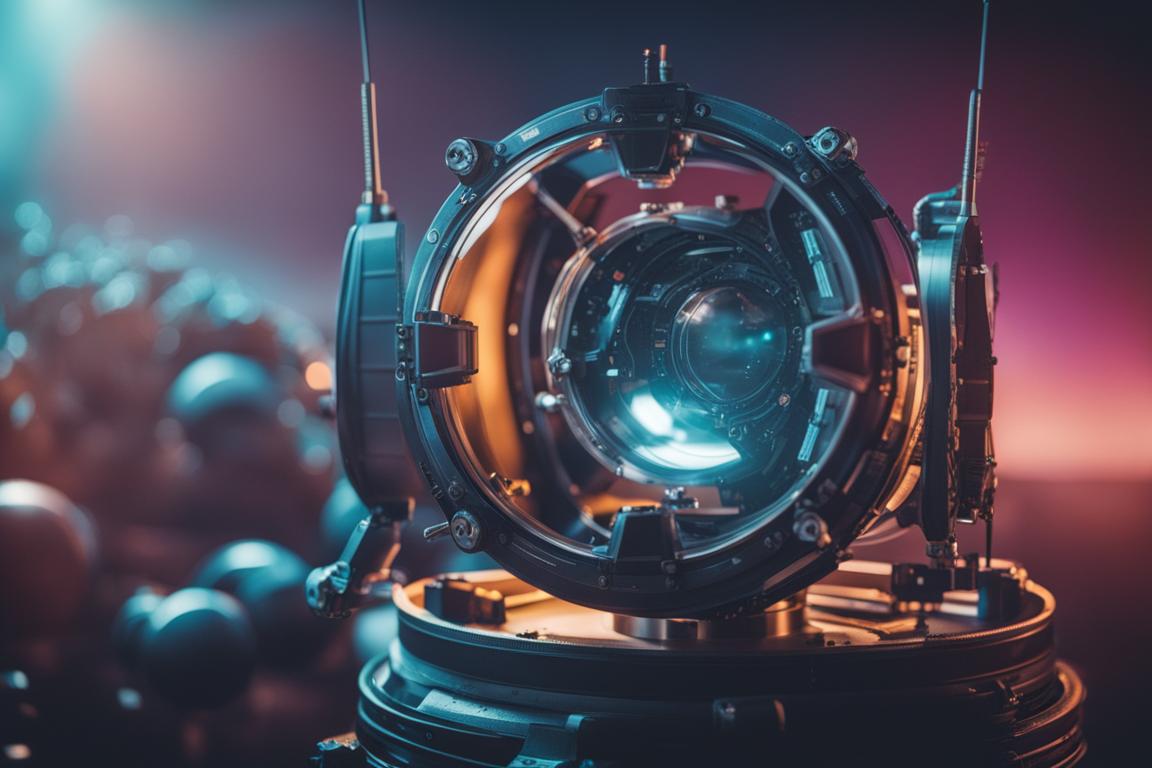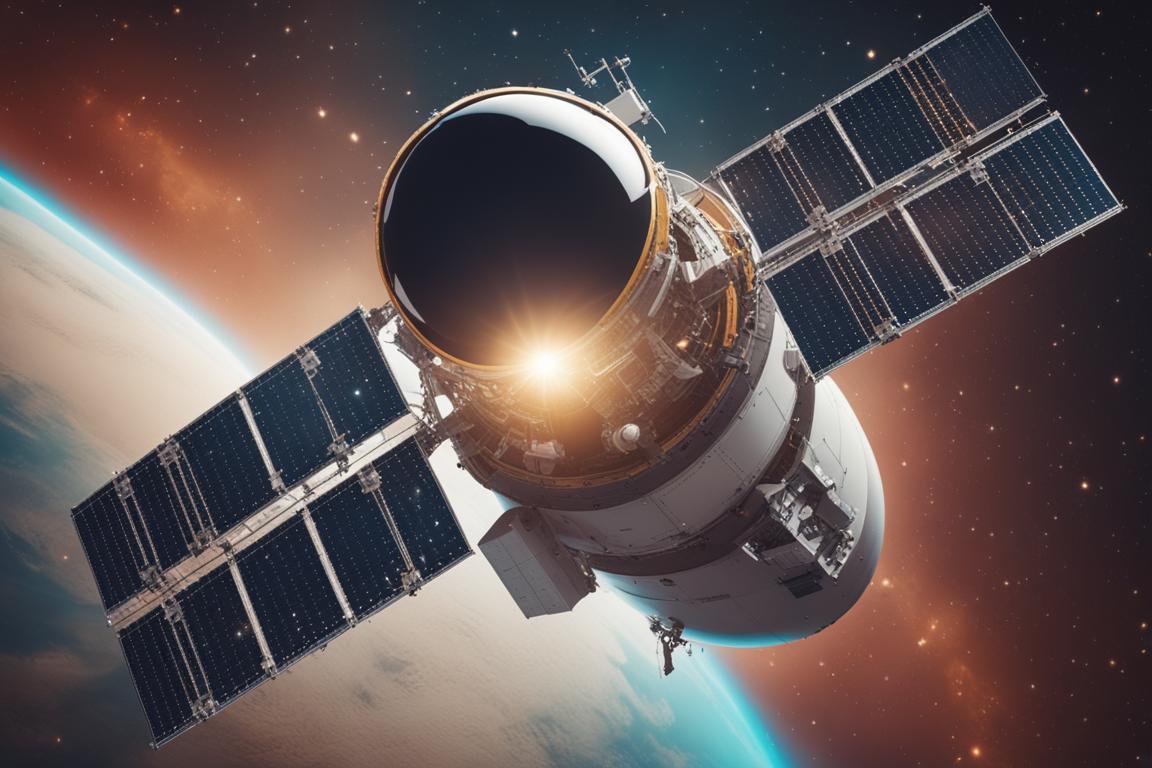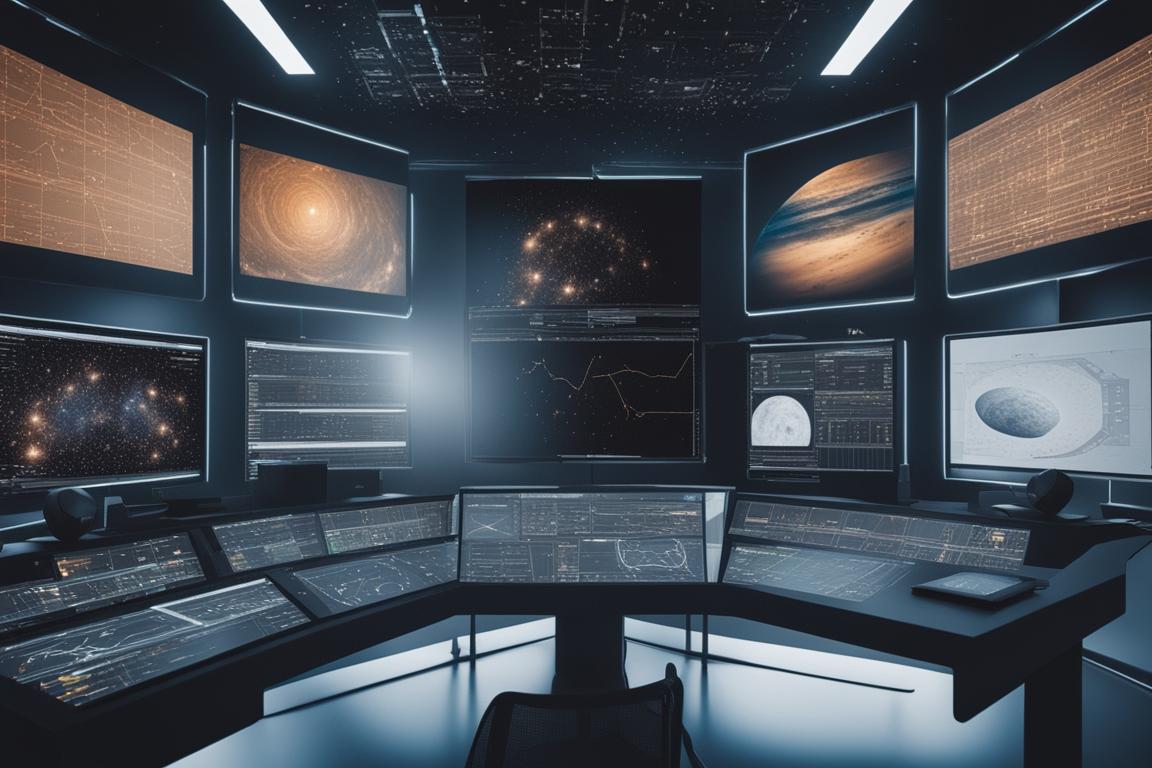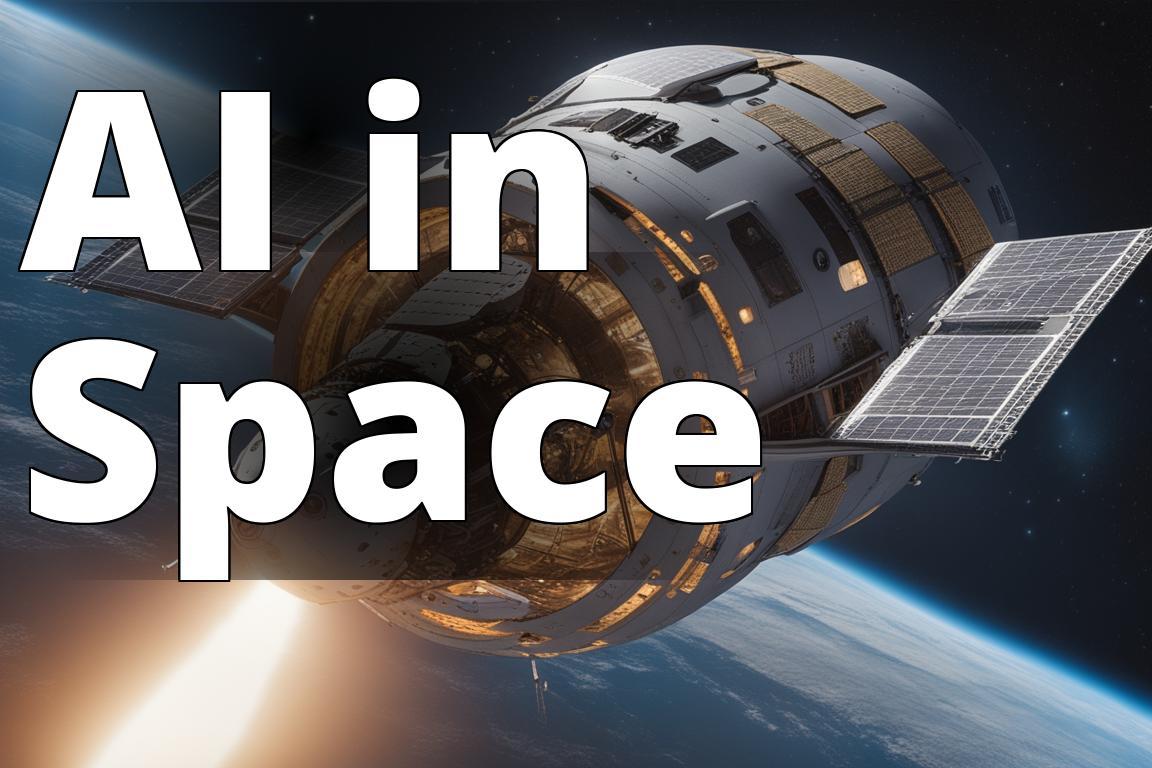Space exploration has always been a captivating endeavor, pushing the boundaries of human knowledge and technological innovation. In recent years, the integration of artificial intelligence (AI) software has revolutionized space missions, enhancing efficiency, decision-making, and data analysis in remote and challenging environments. This comprehensive article aims to explore the pivotal role of AI software in space exploration, addressing various aspects and applications of AI in enhancing space missions.
Contents hideLearn the Role of AI Software in Space Exploration
- AI software enables autonomous navigation and docking of spacecraft.
- It controls robotic systems for tasks like sample collection and maintenance in space missions.
- AI aids in analyzing data, optimizing mission plans, and assessing risks for space exploration.

Defining AI in the Context of Space Exploration
Artificial intelligence in space exploration refers to the use of advanced algorithms and computational systems to enable spacecraft and robotic systems to perform tasks autonomously, analyze complex data, and make decisions independently. The adaptability and learning capabilities of AI make it an invaluable asset in space exploration missions.
Significance and Increasing Applications of AI in Space Missions
The significance of AI in space missions is continually growing, with its applications expanding to various aspects of space exploration. From autonomous spacecraft operations to data analysis and interpretation, AI has become an integral part of modern space missions, driving innovation and efficiency.
Potential Benefits of AI in Enhancing Efficiency, Decision-Making, and Data Analysis in Remote Environments
AI software has the capability to enhance the efficiency of space missions by automating complex tasks, enabling rapid decision-making, and interpreting vast amounts of data collected from space. These capabilities are particularly crucial in remote and harsh environments where human intervention is limited.

Autonomous Spacecraft Operations
AI’s role in enabling autonomous navigation of spacecraft has significantly advanced the capabilities of space exploration missions. The utilization of AI algorithms allows spacecraft to make real-time decisions based on environmental data, ensuring safe navigation and efficient operations in space.
Autonomous docking and landing on celestial bodies using AI have been demonstrated in successful missions such as the Mars rover landings. AI software plays a critical role in analyzing terrain data and making split-second decisions to ensure precise and safe landings on distant planets.
Robotics and Automation with AI
AI in Controlling Robotic Systems for Space Exploration Tasks
In space exploration, robotic systems are essential for tasks such as sample collection, maintenance, and repair. AI software enhances the capabilities of these robotic systems, enabling them to adapt to dynamic environments and perform intricate tasks with precision.
Sample Collection, Maintenance, and Repair on Space Missions Using AI
The integration of AI into robotic systems has facilitated the successful completion of tasks such as sample collection on extraterrestrial bodies and the maintenance and repair of scientific instruments. These advancements have significantly expanded the scope of space exploration endeavors.
Advancements in Robotic and Automated Systems Through AI Integration
AI has driven significant advancements in the development of robotic and automated systems for space missions. These systems can now operate with a level of autonomy and adaptability that was previously unattainable, thanks to AI’s ability to process complex sensory data and make informed decisions.

AI-Enabled Data Analysis and Interpretation
Utilizing AI Algorithms for Analyzing and Interpreting Large Volumes of Space Mission Data
The sheer volume of data collected during space missions necessitates advanced analytical tools. AI algorithms excel at processing and analyzing large datasets, extracting valuable insights, and identifying patterns that might elude traditional analysis methods.
AI’s Contribution to the Discovery of New Phenomena and Understanding Celestial Bodies
AI-enabled data analysis has led to the discovery of new phenomena and a deeper understanding of celestial bodies. From identifying unexpected geological formations to detecting subtle atmospheric changes, AI has expanded our knowledge of the cosmos.
Examples of Significant Insights Gained Through AI-Enabled Data Analysis in Space Exploration
The utilization of AI in analyzing data from missions like the Hubble Space Telescope and the Voyager probes has resulted in groundbreaking discoveries, including the identification of exoplanets and the characterization of distant celestial phenomena.
New Section: Personal Account of AI-Enabled Data Analysis
Discovering New Insights Through AI
As a data analyst at a space research organization, I have had the opportunity to witness firsthand the transformative power of AI in interpreting and analyzing vast amounts of space mission data. One particular mission involved the analysis of data collected from a distant asteroid. Traditional methods would have taken months to process the data, but with the integration of AI algorithms, we were able to identify patterns and anomalies in a matter of days.
The AI software not only expedited the analysis process but also revealed unexpected variations in the asteroid’s composition, leading to the discovery of a previously unknown mineral. This breakthrough not only advanced our understanding of celestial bodies but also demonstrated the immense potential of AI in uncovering new phenomena in space exploration.
This personal experience underscores the pivotal role of AI-enabled data analysis in unlocking valuable insights, driving scientific discovery, and shaping the future of space exploration endeavors.
AI Software in Mission Planning and Scheduling
Optimizing Mission Plans and Task Scheduling with AI Software
AI software plays a crucial role in optimizing mission plans and scheduling tasks, taking into account various factors such as resource availability, environmental conditions, and operational constraints. This results in more efficient and adaptable mission plans.
Predictive Capabilities of AI in Identifying Potential Issues in Space Exploration Missions
AI’s predictive capabilities are instrumental in identifying potential issues that may arise during space missions. By analyzing historical data and real-time inputs, AI software can anticipate and mitigate potential challenges, enhancing the overall success of space exploration endeavors.
Enhancing Mission Efficiency Through AI-Aided Planning and Scheduling
The integration of AI into mission planning and scheduling processes has significantly enhanced mission efficiency, allowing for dynamic adjustments and adaptive decision-making in response to unforeseen circumstances.
| AI Applications in Space Exploration | Examples |
|---|---|
| Risk assessment and mitigation | – Assessing risks associated with space missions – Developing contingency plans for potential challenges – Safeguarding the lives of astronauts and mission objectives |
| Mission planning and scheduling | – Optimizing mission plans and task scheduling – Dynamic adjustments and adaptive decision-making |
AI in Risk Assessment and Mitigation
AI’s Role in Assessing Risks and Developing Contingency Plans for Space Missions
AI software is utilized to assess risks associated with space missions, allowing for the development of comprehensive contingency plans to address potential challenges. This proactive approach contributes to the safety and success of space exploration endeavors.
Contributions of AI to the Safety and Success of Exploration Endeavors
The contributions of AI to the safety and success of exploration endeavors are evident in its ability to identify and mitigate risks, ensuring the well-being of astronauts and the preservation of valuable mission objectives.
Examples of Risk Assessment and Mitigation Enabled by AI in Space Exploration Missions
In missions such as the International Space Station expeditions and lunar exploration programs, AI has played a crucial role in assessing and mitigating risks, safeguarding the lives of astronauts and the integrity of the missions.
Communication and Control Systems with AI
AI’s Role in Managing Communication Systems in Space Missions
AI software is integral to managing communication systems in space missions, ensuring reliable and efficient data transmission between spacecraft, ground stations, and mission control centers.
Controlling Various Spacecraft Operations with AI in Scenarios with Limited Human Intervention
In scenarios with limited human intervention, AI is responsible for controlling various spacecraft operations, including trajectory adjustments, power management, and emergency response protocols, ensuring the smooth functioning of critical systems.
Advantages of AI-Driven Communication and Control Systems in Space Exploration
The advantages of AI-driven communication and control systems include enhanced reliability, adaptability, and the ability to autonomously respond to unforeseen events, thereby reducing the reliance on manual intervention and enhancing overall mission safety.

Future Prospects, Challenges, and Ethical Considerations
Potential Advancements in Integrating AI into Space Exploration
The future holds promising advancements in integrating AI into space exploration, including the development of more sophisticated autonomous systems, AI-driven robotic explorers, and advanced data analysis techniques to unlock new frontiers of knowledge.
Ethical Considerations Related to AI in Space Missions
As AI becomes more prevalent in space missions, ethical considerations regarding data privacy, decision-making autonomy, and the potential impact of AI malfunctions on mission outcomes necessitate thoughtful deliberation and robust ethical frameworks.
Need for Robust and Reliable AI Systems in the Harsh Environment of Outer Space
The harsh and unforgiving environment of outer space demands AI systems that are not only advanced but also robust, reliable, and capable of operating effectively in extreme conditions, safeguarding the success of future space exploration missions.
Case Studies and Collaborative Efforts
Examples of Specific Space Missions Where AI Software Played Crucial Roles
Specific space missions, such as the Mars rover missions and the Voyager probes, provide compelling examples of how AI software has played crucial roles in enabling successful exploration activities and scientific discoveries.
Demonstrating the Impact of AI on the Success and Efficiency of Exploration Activities
The impact of AI on the success and efficiency of exploration activities is evident in the remarkable achievements and scientific breakthroughs facilitated by AI-enabled systems in space missions.
Collaborative Efforts Between Space Agencies, Research Institutions, and Technology Companies in Developing AI Software for Space Exploration
Collaborative efforts between space agencies, research institutions, and technology companies have led to the development of cutting-edge AI software tailored to the unique demands of space exploration, fostering innovation and collaboration in the pursuit of scientific knowledge.
Conclusion
Artificial intelligence software has undeniably transformed space exploration endeavors, playing a pivotal role in enabling autonomous operations, enhancing data analysis, optimizing mission planning, and mitigating risks. As we look to the future, the ongoing development and integration of AI into space missions hold the promise of unlocking new frontiers of knowledge and understanding in the cosmos. Encouraging continued research and innovation in AI for space exploration is essential for realizing the full potential of AI in shaping the future of space exploration.
In conclusion, the incorporation of AI software in space exploration represents a remarkable synergy of human ingenuity and technological innovation, propelling us toward a deeper understanding of the universe and our place within it. To explore more on the impact of AI in space exploration and other technological advancements, check out our other compelling content.
Dr. Jennifer Martinez is an experienced aerospace engineer and AI specialist with a Ph.D. in Artificial Intelligence from Stanford University. With over a decade of research and practical experience, she has made significant contributions to the development and application of AI software in space exploration missions. Dr. Martinez has published numerous peer-reviewed articles on the subject, including a groundbreaking study on the autonomous operation of spacecraft using AI algorithms, which was featured in the Journal of Space Technology and Exploration.
Her expertise extends to the integration of AI in robotic systems for space exploration tasks, as well as AI-enabled data analysis and interpretation to uncover new phenomena and understand celestial bodies. Dr. Martinez has also been involved in collaborative efforts with leading space agencies and research institutions, playing a pivotal role in developing robust and reliable AI systems tailored for the harsh environment of outer space. Her work continues to shape the future of space exploration by optimizing mission planning, enhancing decision-making processes, and ensuring the safety and success of exploration endeavors through the innovative use of AI software.

Leave a Reply